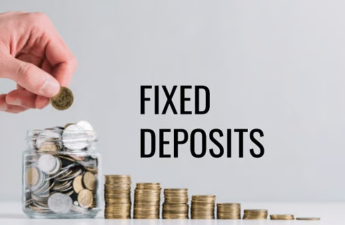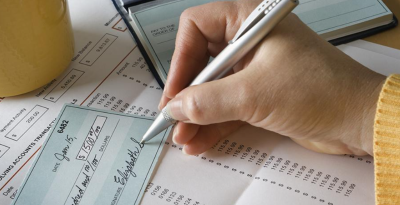Most people, when they don't need a loan, have almost never paid attention to loan information, whether it is loan products, loan processes or policies. They often pay attention to it when they suddenly need a loan, but the larger the loan demands, the more details they need to prepare in advance. The more prepared you are, the more likely you are to find a cheap loan.

Most people, when they don't need a loan, have almost never paid attention to loan information, whether it is loan products, loan processes or policies. They often pay attention to it when they suddenly need a loan, but the larger the loan demands, the more details they need to prepare in advance. The more prepared you are, the more likely you are to find a cheap loan.

- What is a personal loan?
Personal loans refer to loans in RMB or foreign currencies issued by banks or other financial institutions to natural persons who meet the loan conditions for personal consumption, production and operation, etc.
- What are the types of personal loans?
Personal loans include personal housing loans, personal housing provident fund loans, personal car loans, personal study abroad loans, personal comprehensive consumer loans, personal production and operation loans, personal credit loans, personal deposit certificates (treasury bonds) pledge loans, etc.
- What is a small credit loan for farmers?
A small credit loan for farmers refers to a loan that does not require mortgage or guarantee and is issued by a credit union to farmers within the approved amount and period based on the credit of the farmers. It is suitable for farmers and individual business owners who are mainly engaged in rural land cultivation or other production and operation activities related to rural economic development.
- What is a national student loan?
National student loans are bank loans provided by the government to help students from poor families in colleges and universities. Borrowing students do not need to apply for loan guarantees or mortgages, repay on time after graduation, and bear corresponding legal responsibilities.
- What should you pay attention to when applying for a personal loan?
- Apply for a loan amount within your means. Usually, the monthly repayment amount should not exceed 50% of the total family income;
- The purpose of the loan must be legal and compliant, and the transaction background must be true;
- Choose a repayment method that suits you based on your repayment ability and future income expectations;
- Provide the bank with true information, accurate address and contact information, and notify the bank in time when changes occur;
- Read the contract terms carefully and understand your rights and obligations;
- Repay on time to avoid a bad credit record;
- Do not lose the loan contract and loan note. For mortgage loans, do not forget to cancel the mortgage registration after paying off the loan.
- What should you pay attention to when using a personal loan?
- Personal loans must have a clear purpose and should comply with laws, regulations and relevant national policies. The transaction background must be true and the transaction background and loan purpose must not be fabricated;
- The use of personal loans should follow the principle of good faith and comply with the purpose agreed in the loan contract. According to current national regulations, loan funds must not enter the stock market, real estate development and other areas that the state has expressly prohibited from entering;
- For loans to purchase housing, personal housing loans should be applied for in accordance with national regulations. According to current national regulations, consumer loans are prohibited from purchasing housing.
- Fixed interest rate and floating interest rate
Fixed interest rate refers to the interest rate that is not adjusted during the loan period, that is, the interest rate set when the loan contract is signed. Regardless of how the market interest rate changes during the loan period, the borrower pays interest at a fixed interest rate. Floating interest rate is an interest rate that can be adjusted regularly during the loan period. According to the agreement between the borrower and the lender, it is adjusted according to the market interest rate during the loan period. At present, according to the provisions of the loan contract, it is generally adjusted accordingly on January 1 of each year according to changes in the market interest rate.
- What are the repayment methods?
The repayment method refers to the way in which the borrower repays the principal and interest of the loan. The interest is calculated based on the amount of the borrower's remaining principal. Different repayment methods determine the speed of principal repayment, which leads to different total interest payments. In the equal principal and interest repayment method, the principal increases month by month, the interest decreases month by month, and the monthly repayment number remains unchanged; in the equal principal repayment method, the principal remains the same, the interest decreases month by month, and the monthly repayment number decreases. Compared with the two, under the same loan term, amount and interest rate, in the early stage of repayment, the monthly repayment amount of the equal principal repayment method is greater than the equal principal and interest. However, calculated according to the entire repayment period, the equal principal repayment method will save the loan interest expenditure.
Generally speaking, the equal principal repayment method is suitable for borrowers who have a certain economic foundation, can bear the greater repayment pressure in the early stage, and have an early repayment plan. The equal principal and interest repayment method is convenient for arranging income and expenditure because the same amount is returned every month. It is suitable for borrowers whose economic conditions do not allow too much repayment investment in the early stage and whose income is in a relatively stable state.


